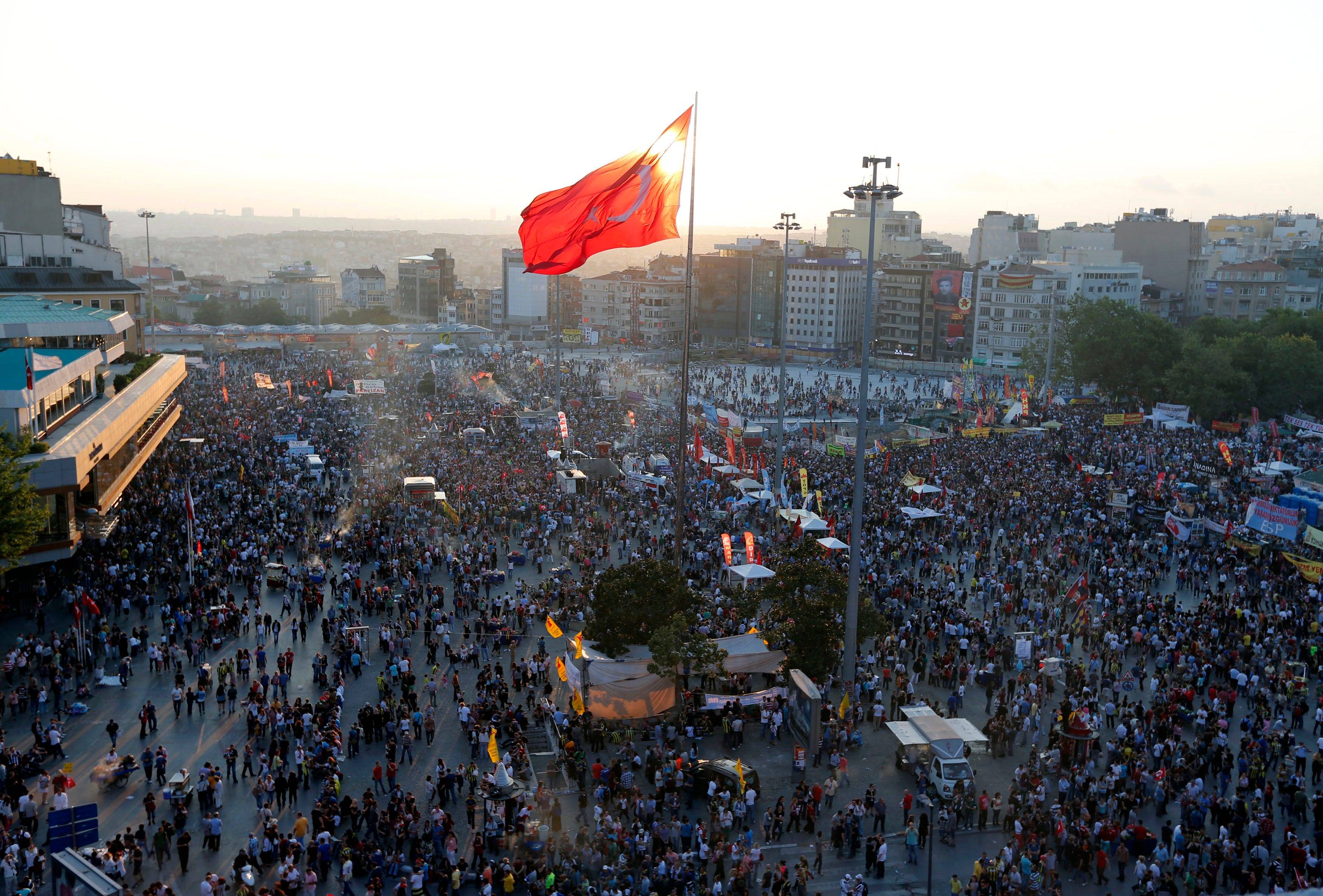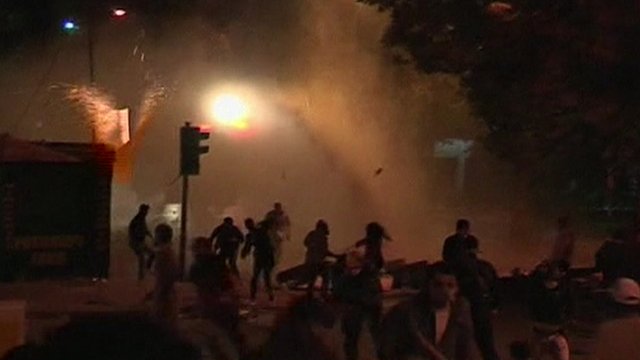Riot police again deployed in Turkey's two main cities, and authorities kept up their unyielding stance against the street demonstrations centering on Istanbul's Taksim Square. But Monday's police sweep was less forceful than in recent days, with only scattered firing of tear gas and water cannon on pockets of protesters. After activists were ousted from their sit-in in adjacent Gezi Park over the weekend, two labor confederations that represent some 330,000 workers picked up the slack Monday by calling a strike and demonstrations nationwide. Unionists turned up by the thousands in Ankara, Istanbul, coastal Izmir and elsewhere.
The turnout defied Turkey's interior minister, Muammer Guler, who warned that anyone taking part in unlawful demonstrations would "bear the legal consequences." But one analyst called the rallies a "legitimate and a lawful expression of constitutional rights." "People are raising their voices against the excessive use of police force," said Koray Caliskan, a political science professor at Istanbul's Bosphorus University. Demonstrators, he said, were showing they were no longer cowed by authorities, and "the fear threshold has been broken." In a sign that authorities were increasingly impatient, Deputy Prime Minister Bulent Arinc floated the prospect that authorities could call in troops to quash the protests.

People shout anti-government slogans during a rally by the labor unions in Istanbul, Turkey, Monday, June 17, 2013. A day earlier, riot police cordoned off streets, set up roadblocks and fired tear gas and water cannons to prevent anti-government protesters from an effort to return to Taksim Square in Istanbul. Labor unions and political foes of Prime Minister Recep Erdogan rallied Monday by the thousands across Turkey, hoping to capitalize on weeks of protest that began as small-scale activism and parlay it into a chance to register broader discontent.
Erdogan's opponents have grown increasingly suspicious about what they call a gradual erosion of freedoms and secular values under his Islamic-rooted ruling party. It has passed new curbs on alcohol and tried, but later abandoned its plans, to limit women's access to abortion. The government set off protests nationwide and drew criticism abroad over a police crackdown that began May 31 against environmentalists and other activists in Taksim Square who were protesting against plans to tear down trees and re-develop Gezi Park. Thousands have flooded the streets nightly since then, many honking car horns and waving Turkish flags.
Erdogan, who has held power for 10 years and was re-elected in 2011, mobilized his supporters over the weekend in two huge rallies - insisting his duty was to keep order, railing against media coverage of the protests and lashing out at unspecified foreigners whom he said want to hurt Turkey. TV images Monday showed crowds of government supporters in Istanbul facing down some protesters and chanting "the hands targeting the police should be broken." On Twitter, a trending topic urged protesters to stay home - some expressing concern that pro-government mobs might attack them.
MORE






